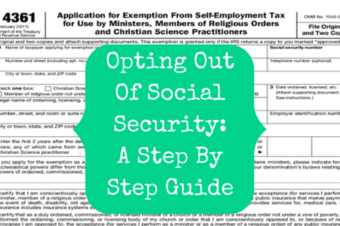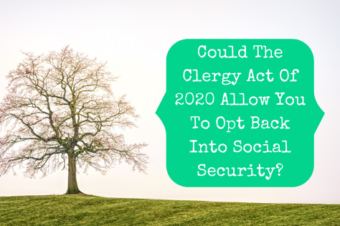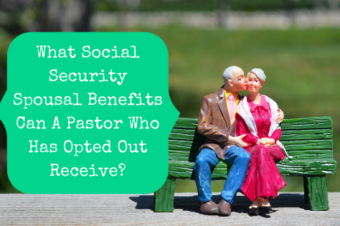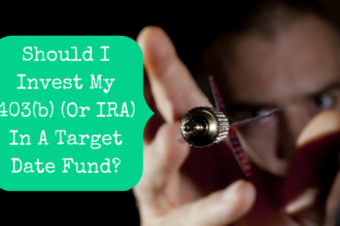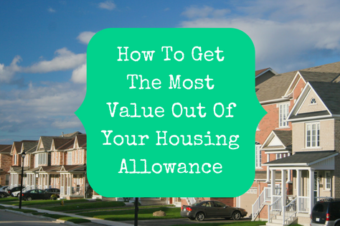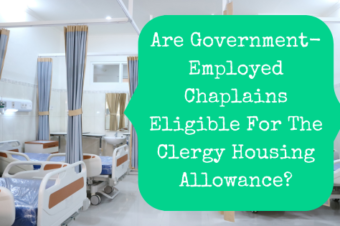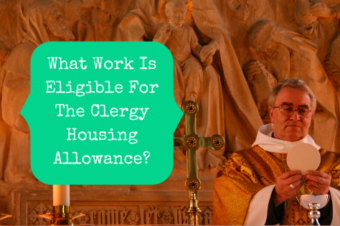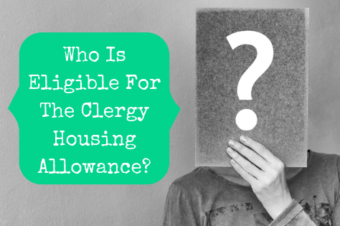If you google the question should pastors opt out of social security? you will find a number of passionately written articles with strong opinions. But they’re all wrong. It’s not really a valid question, especially for an internet search. It’s like asking:
Should pastors preach exegetical or topical sermons?
Should offering come before or after the sermon?
Should I make tacos or hamburgers for dinner?
Should I marry a guy with black hair or brown hair?
You see, the problem with the question is that there isn’t one right answer. It’s subjective. It’s based on an individual pastor’s personal convictions and beliefs. And anyone who tries to tell you otherwise is a little too big for their britches, to put it nicely.
Why Pastors Opt Out Of Social Security
When you fill out Form 4361 to opt out of Social Security you have to sign a statement that says,
I certify that I am conscientiously opposed to, or because of my religious principles I am opposed to, the acceptance (for services I perform as a minister, member of a religious order not under a vow of poverty, or Christian Science practitioner) of any public insurance that makes payments in the event of death, disability, old age, or retirement; or that makes payments toward the cost of, or provides services for, medical care. (Public insurance includes insurance systems established by the Social Security Act.)
I certify that as a duly ordained, commissioned, or licensed minister of a church or a member of a religious order not under a vow of poverty, I have informed the ordaining, commissioning, or licensing body of my church or order that I am conscientiously opposed to, or because of religious principles I am opposed to, the acceptance (for services I perform as a minister or as a member of a religious order) of any public insurance that makes payments in the event of death, disability, old age, or retirement; or that makes payments toward the cost of, or provides services for, medical care, including the benefits of any insurance system established by the Social Security Act.
I certify that I have never filed Form 2031 to revoke a previous exemption from social security coverage on earnings as a minister, member of a religious order not under a vow of poverty, or Christian Science practitioner.
I request to be exempted from paying self-employment tax on my earnings from services as a minister, member of a religious order not under a vow of poverty, or Christian Science practitioner, under section 1402(e) of the Internal Revenue Code. I understand that the exemption, if granted, will apply only to these earnings. Under penalties of perjury, I declare that I have examined this application and to the best of my knowledge and belief, it is true and correct.
Why It Isn’t Wrong To Opt Out Of Social Security For Pastors
So, when someone online says that it’s wrong for pastors to opt out of Social Security, they are trying to impose their own beliefs on strangers. Does the Bible make any clear statements about the acceptance of public insurance? Not that I’m aware of (please correct me if I’m wrong).
The acceptance of public insurance is a personal conviction. To say that someone is wrong for having a sincere opposition to accepting public insurance is ridiculous. You cannot judge others’ convictions because you don’t know what God has asked of them.
Why It Isn’t Right To Opt Out Of Social Security For Pastors
On the other side of the argument, you’ll find very well reasoned articles claiming that all pastors should opt out of Social Security because it’s stupid to give the government your money when you know they’re just going to waste it. Opt out because you can do so much better on your own, they say. Personally, I agree with them on the financial side of it.
However, the government makes it very clear that you cannot opt out for financial reasons. IRS Publication 517 lists one of the conditions for a pastor to be able to file for an exemption from Social Security as “You file for other than economic reasons.” Clearly, you can only opt out based on non-financial convictions. Encouraging pastors to opt out of Social Security for financial reasons (even with pure motives) is actually encouraging them to break the law.
What’s the right answer, then? Spend some time alone with God and ask for clarity on your own personal convictions. If you find that you really don’t have any convictions regarding public insurance, then stay in the program with everyone else. If you can honestly sign the above statement, do it. Either way, ignore everyone else and listen to the Holy Spirit inside of you. Just make sure you don’t become a hypocrite based on your choice.


